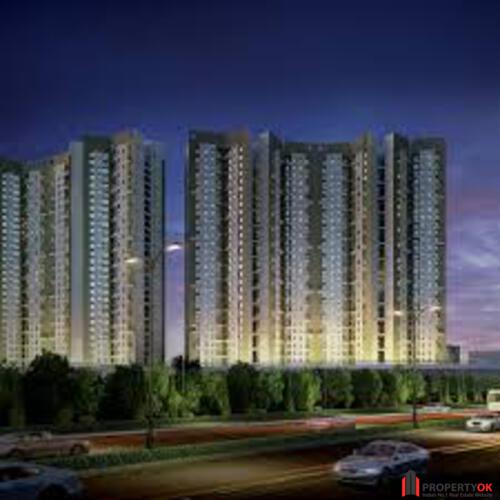India’s commercial real estate sector is in the midst of a transformative journey, propelled by a confluence of factors including robust economic growth, urbanization trends, and technological advancements. This blog provides an in-depth exploration of the key trends shaping the commercial real estate landscape in India, offering valuable insights for investors, developers, and industry stakeholders.

India’s Commercial Real Estate: A Dynamic Transformation

As the Indian economy continues to expand, the demand for modern and high-quality commercial spaces is witnessing unprecedented growth. Several trends are shaping the trajectory of the commercial real estate market, influencing investment decisions and reshaping urban landscapes.
1. Tier II and III City Growth:
Traditionally dominated by metros, the commercial real estate focus is shifting towards Tier II and III cities. These cities are experiencing rapid economic and infrastructure development, offering lower costs, a growing talent pool, and business-friendly environments. This decentralization trend is diversifying investment opportunities beyond the established urban centers.
2. Rise of Co-working Spaces:
The rise of co-working spaces is a notable phenomenon in India’s commercial real estate sector. Favored by startups, freelancers, and small businesses, co-working spaces provide flexible work environments, networking opportunities, and cost-effectiveness. This trend reflects a shift in the way businesses perceive and utilize office spaces.
3. Demand for Sustainable Buildings:
Sustainability has become a priority for both developers and occupiers. Modern commercial buildings are designed with a focus on energy efficiency, water conservation, and waste management. Sustainable practices not only align with global environmental concerns but also contribute to cost savings and long-term value for stakeholders.
4. Technology Integration:

The integration of technology into commercial real estate operations is a game-changer. From optimizing space utilization to enhancing tenant experiences, technology is driving efficiency and innovation. Innovations such as smart building systems, IoT (Internet of Things) integration, and data analytics are becoming integral to modern commercial spaces.
5. E-commerce Driving Logistics Demand:
The booming e-commerce sector is fueling the demand for advanced logistics facilities. Warehouses, distribution centers, and fulfillment centers are becoming critical components of the commercial real estate landscape. This trend is a direct response to the changing dynamics of retail and the need for efficient supply chain solutions.
6. Focus on Wellness and Amenities:
Commercial real estate developers are incorporating wellness features and amenities to attract and retain tenants. Gyms, outdoor spaces, recreational facilities, and wellness programs contribute to creating vibrant and employee-friendly work environments. These amenities align with the changing expectations of today’s workforce.
7. Impact of PropTech:
PropTech, or property technology, is disrupting traditional real estate practices. From transaction processes to property management and marketing, PropTech solutions are enhancing efficiency and transparency. The adoption of innovative technologies is a critical factor for staying competitive in the evolving commercial real estate landscape.
Real Estate Construction Trends: Building the Future

The dynamics of real estate construction in India are undergoing a significant transformation, fueled by changing consumer preferences, technological advancements, and a commitment to sustainable development. This section explores the key construction trends that are reshaping the landscape of commercial real estate in the country.
1. Modular Construction:
Modular construction is gaining traction as a cost-effective and time-efficient method. Prefabricated components are manufactured off-site and assembled on-site, reducing construction time and minimizing disruptions. This trend is particularly relevant for commercial projects aiming for swift completion without compromising quality.
2. Green Building Certification:
The emphasis on sustainable construction practices is driving developers to seek green building certifications. Certifications like LEED (Leadership in Energy and Environmental Design) and GRIHA (Green Rating for Integrated Habitat Assessment) are becoming benchmarks for environmentally conscious construction. Features such as energy-efficient designs and eco-friendly materials contribute to these certifications.
3. Advanced Construction Technologies:
Technological innovations are reshaping construction processes. Robotics, 3D printing, and Building Information Modeling (BIM) are becoming integral to modern construction projects. These technologies enhance precision, reduce errors, and improve overall project efficiency.
4. Smart Construction Materials:
The use of smart construction materials is on the rise. Materials with embedded sensors and self-healing capabilities are being employed to enhance durability and reduce maintenance costs. Additionally, the integration of smart materials contributes to improved energy efficiency in buildings.
5. Sustainable Urban Planning:
Commercial real estate projects are increasingly adopting sustainable urban planning principles. This involves designing integrated spaces that prioritize walkability, green spaces, and efficient transportation. Sustainable urban planning contributes to the overall well-being of occupants and fosters a sense of community.
Smart Cities and Real Estate: Pioneering Urban Development
The concept of smart cities is revolutionizing urban development in India, influencing how commercial real estate projects are planned, designed, and executed. This section delves into the integration of smart city initiatives within the real estate landscape and their impact on commercial developments.
1. The Best City for Business in India:
Identifying the best city for business is a crucial consideration for investors and developers. While traditional business hubs like Mumbai and Delhi continue to thrive, emerging cities like Bengaluru, Hyderabad, and Pune are gaining prominence. Factors such as infrastructure, talent pool, and business-friendly policies contribute to the appeal of these cities for commercial real estate ventures.
2. The Role of Smart Cities in Real Estate:
Smart cities leverage technology to enhance the quality of life for residents and promote sustainable development. In the context of commercial real estate, this translates to integrated planning, efficient transportation systems, and the incorporation of digital technologies to create intelligent and responsive urban spaces.
3. Impact on Commercial Real Estate Trends:
Smart city initiatives have a profound impact on commercial real estate trends. Developments within smart cities prioritize mixed-use spaces, connectivity, and sustainability. Commercial projects in these areas are designed to align with the overarching goal of creating smart, connected, and environmentally conscious urban environments.
4. Technology-Driven Urban Planning:
The integration of technology into urban planning is a defining feature of smart cities. This includes the use of data analytics, IoT sensors, and smart infrastructure to optimize traffic flow, energy consumption, and public services. Commercial real estate projects within smart cities benefit from these technological advancements, creating a seamless and efficient environment for businesses.
Impact of These Trends on Commercial Real Estate Investments
The evolving trends in India’s commercial real estate market are creating new avenues for investors. Opportunities abound in Tier II and III cities, co-working spaces, sustainable buildings, logistics facilities, and PropTech solutions. Investors are strategically aligning their portfolios with these trends to capitalize on the changing dynamics of the market.
The real estate industry, while full of opportunities, also faces its share of challenges. Navigating this dynamic terrain requires a keen understanding of the obstacles at play and strategic approaches to overcome them. Let’s delve into some of the key challenges faced by the real estate industry and explore ways to navigate through them.
1. Regulatory Changes:
The real estate sector is heavily regulated, and changes in policies and regulations can impact the industry dynamics, affecting project timelines and profitability. Stay informed about regulatory updates, work closely with legal experts, and adapt business strategies to comply with changing regulations. Building strong relationships with regulatory authorities can also provide insights and facilitate smoother processes.
2. Economic Volatility:
Economic uncertainties and market fluctuations can influence property demand, financing options, and investor confidence, posing challenges for developers and investors alike. Diversify portfolios to spread risk, closely monitor economic indicators, and adapt investment strategies based on market conditions. Maintaining financial flexibility and having contingency plans in place can help mitigate the impact of economic volatility.
3. Funding Constraints:
Access to funding is crucial for real estate projects, and challenges in securing financing, especially during economic downturns, can hinder project development. Explore alternative financing options, such as partnerships, joint ventures, or private equity. Building strong relationships with financial institutions and maintaining a robust financial profile can enhance the likelihood of securing funding.
4. Technological Disruptions:
Rapid technological advancements can disrupt traditional real estate practices, and failure to adapt to new technologies may result in inefficiencies and loss of competitiveness. Embrace technology trends such as PropTech, data analytics, and smart building solutions. Investing in digital platforms for property marketing, sales, and management can enhance operational efficiency and customer experiences.
5. Changing Consumer Preferences:
Evolving consumer preferences and demands require developers to stay attuned to market trends and deliver properties that align with changing lifestyles. Conduct thorough market research to understand consumer preferences, engage with potential buyers to gather insights, and adapt property designs and amenities accordingly. Flexibility in project planning to accommodate changing preferences is key.
6. Supply Chain Disruptions:
Disruptions in the supply chain, as witnessed in times of global crises, can lead to delays in construction, increased costs, and challenges in project execution. Diversify suppliers, maintain open communication with stakeholders in the supply chain, and have contingency plans for potential disruptions. Building strategic stockpiles of critical materials can also mitigate the impact of supply chain challenges.
7. Environmental and Sustainability Concerns:
Increasing environmental awareness has elevated the importance of sustainable and eco-friendly real estate practices, posing challenges for projects not aligned with these principles. Incorporate sustainable practices in project development, adhere to green building certifications, and communicate the environmental benefits of the project to stakeholders. Embracing sustainable design and construction practices can enhance market appeal.
Future Outlook for India’s Commercial Real Estate Market
The future outlook for India’s commercial real estate market is optimistic. The country’s favorable economic outlook, coupled with increasing urbanization, positions commercial real estate for sustained growth. Government initiatives, including smart city projects and infrastructure development, further enhance the investment landscape.
As India’s commercial real estate market evolves, staying abreast of emerging trends is paramount for investors and developers. Strategies that focus on sustainability, technology integration, and tenant-centric designs will be key to creating attractive and profitable projects that meet the dynamic needs of the market.
Property Management in India: Ensuring Efficiency
Effective property management is essential for optimizing the performance of commercial real estate assets. From ensuring tenant satisfaction to maintaining sustainable practices, property management plays a crucial role in enhancing the overall value of investments.
Collaboration within the real estate sector and with other industries is becoming increasingly important. Partnerships between developers, technology firms, and sustainability experts are fostering innovation. Collaborative efforts aim to create holistic and integrated solutions that align with the evolving demands of commercial real estate.
Real Estate Agents in Dombivli West: Local Expertise
The role of real estate agents remains pivotal in navigating the complexities of the market. In areas like Dombivli West, local expertise becomes invaluable. Real estate agents serve as guides, providing insights into market trends, upcoming developments, and investment opportunities.
Read this blog to know 5 TIPS TO FIND THE BEST REAL ESTATE AGENT IN INDIA
5 TIPS TO FIND THE BEST REAL ESTATE AGENT IN INDIA
Conclusion
India’s commercial real estate sector is at a crossroads, presenting a landscape of challenges and opportunities. By embracing construction trends, affordable flats initiatives, collaborative approaches, and innovative retail developments, the industry can navigate the evolving terrain successfully. As the sector adapts to technological advancements and sustainable practices, it positions itself for a future characterized by resilience, innovation, and sustained growth. Investors, developers, and industry participants alike are key players in shaping this dynamic future, where commercial real estate becomes a cornerstone of India’s economic and urban development.
Unlock unparalleled opportunities in India’s dynamic commercial real estate landscape! Delve into a wealth of insights and explore diverse investment avenues on our website. Discover the latest trends, expert guidance, and strategic market analyses in our real estate-related articles. Empower your investment decisions and navigate the evolving commercial real estate terrain with confidence. Your journey into the future of Indian commercial real estate begins here at Propertyok. Explore more for a rewarding and informed investment experience.
FAQs
1. What are the key factors driving the shift towards Tier II and III cities in commercial real estate?
The shift towards Tier II and III cities is driven by rapid economic and infrastructure development, offering lower costs, a growing talent pool, and business-friendly environments.
2. Why is sustainability becoming a priority in commercial real estate developments?
Sustainability is a priority for both developers and occupiers, focusing on energy efficiency, water conservation, and waste management to align with global environmental concerns and provide long-term value.
3. How is technology integration impacting commercial real estate operations?
Technology integration is enhancing operations, improving tenant experiences, and optimizing space utilization. Innovations like smart building systems, IoT integration, and data analytics are integral to modern commercial spaces.
4. What role does e-commerce play in driving demand for logistics facilities in commercial real estate?
The growth of e-commerce is fueling the demand for modern logistics facilities, including warehouses, distribution centers, and fulfillment centers, to support efficient supply chain solutions.

 Thank You
Thank You




